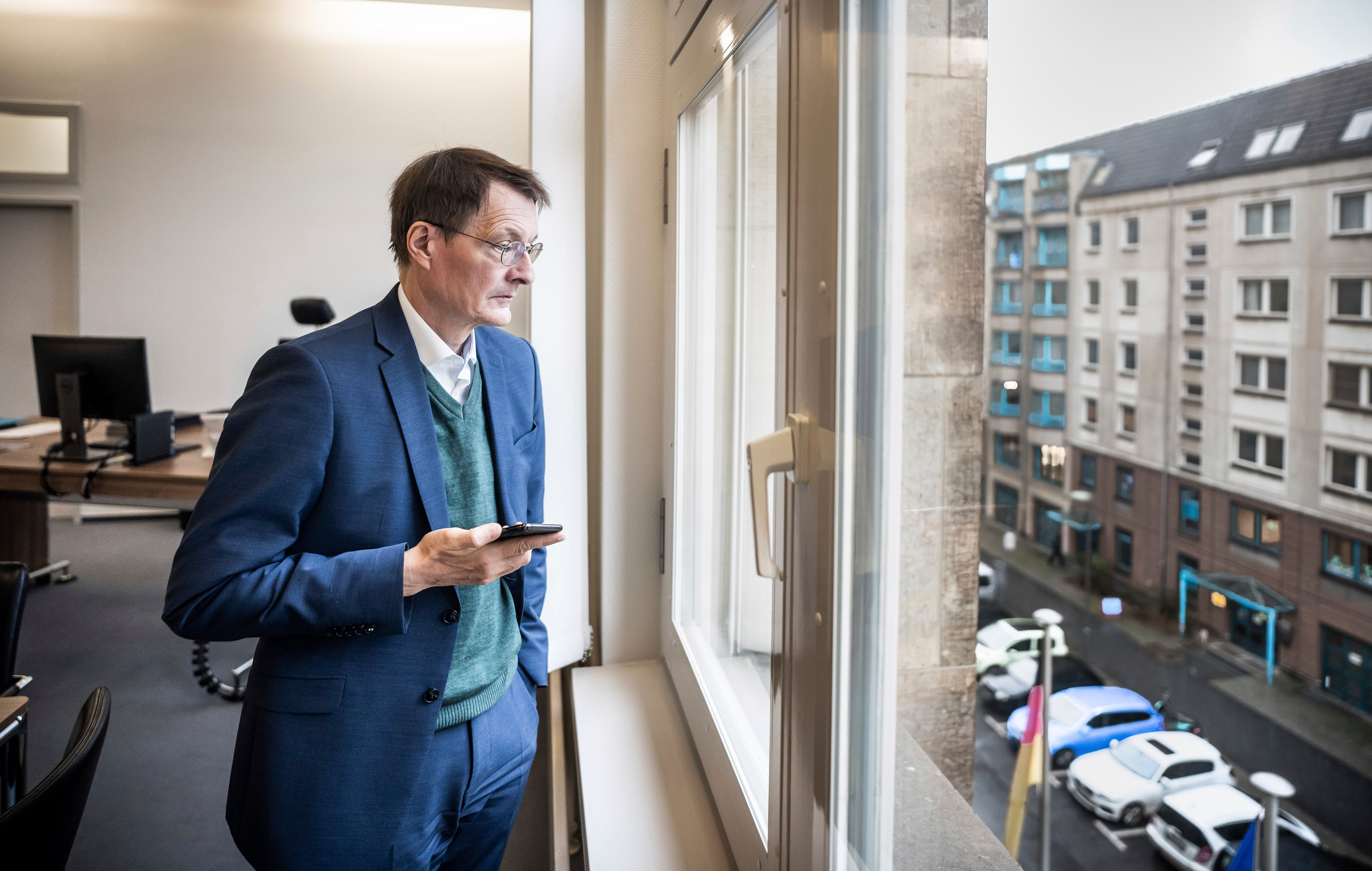German health minister advocates tougher curbs on contacts
Germany’s health minister is advocating tougher curbs on contact between people as the country prepares for a new rise in coronavirus infections fueled by the omicron variant

Your support helps us to tell the story
From reproductive rights to climate change to Big Tech, The Independent is on the ground when the story is developing. Whether it's investigating the financials of Elon Musk's pro-Trump PAC or producing our latest documentary, 'The A Word', which shines a light on the American women fighting for reproductive rights, we know how important it is to parse out the facts from the messaging.
At such a critical moment in US history, we need reporters on the ground. Your donation allows us to keep sending journalists to speak to both sides of the story.
The Independent is trusted by Americans across the entire political spectrum. And unlike many other quality news outlets, we choose not to lock Americans out of our reporting and analysis with paywalls. We believe quality journalism should be available to everyone, paid for by those who can afford it.
Your support makes all the difference.Germany's health minister is advocating tougher curbs on contact between people as the country prepares for a new rise in coronavirus infections fueled by the omicron variant.
Chancellor Olaf Scholz and the country's 16 state governors are set to confer Friday on charting a way forward. They're likely to build on restrictions introduced just after Christmas that limited private gatherings to 10 people, among other things.
“Tightening will unfortunately be necessary to face the serious wave that is coming our way,” Health Minister Karl Lauterbach told the RedaktionsNetzwerk Deutschland newspaper group in comments published Wednesday. He said he would make proposals, but didn't elaborate.
Lauterbach also renewed an appeal for vaccine holdouts to reconsider. He said people who remain unvaccinated in Germany can't expect contact restrictions for them to be lifted “in the short- or medium-term.”
Scholz and the governors also are expected to consider shortening required quarantine periods, something that many other countries already have done.
At present, people who are infected have to self-isolate for 14 days; fully vaccinated people who have no symptoms can end that period after five days with a negative PCR test People who have close contact with someone who tests positive are quarantined for 10 days; quarantine can be ended after seven days with a negative rapid test or five with a negative PCR test.
The COVID-19 situation in Germany remains somewhat foggy because of patchy testing and reporting over the holiday period. On Wednesday, the national disease control center, the Robert Koch Institute said that 58,912 cases were reported over the past 24 hours.
It put Germany's infection rate at 258.6 new cases per 100,000 residents over the past seven days. A week ago, Lauterbach said that the real infection rate was probably two to three times as high as the official figure.
On Tuesday, the disease control center said the COVID-19 hospitalization rate stood at 3.12 per 100,000 residents over seven days.
___
Follow AP’s coverage of the coronavirus pandemic: https://apnews.com/hub/coronavirus-pandemic